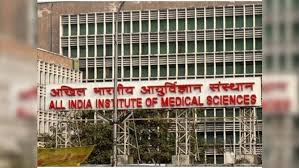
Delhi-AIIMS Develops Affordable Antibody and Cellular Therapy for Cancer Treatment
In a significant stride towards combating cancer in a cost-effective manner, AIIMS Delhi has been advancing the development of low-cost antibody and adaptive cellular therapies. These cutting-edge innovations aim to make modern cancer treatments accessible to a larger population, particularly in countries like India where high costs often restrict access.
The Challenges of Cancer Treatment
Cancer, characterized by the uncontrolled growth of malignant cells, often results in severe health challenges, including cancer-associated cachexia—a condition where normal cells are deprived of nutrients. Traditional treatments like chemotherapy and radiotherapy target rapidly dividing cells but often cause severe side effects by damaging healthy cells.
While the emergence of targeted therapies in the last two decades has improved outcomes by exploiting cancer-specific vulnerabilities, such as over-reliance on certain proteins, resistance to these therapies often leads to cancer relapse. More recently, immunotherapy has revolutionized cancer care with innovations like monoclonal antibodies and CAR T-cell (Chimeric Antigen Receptor T-cell) therapies, which use immune system components to target cancer cells. However, these advanced therapies remain prohibitively expensive, putting them out of reach for many patients.
India’s Growing Cancer Burden
According to the National Cancer Registry, India recorded an estimated 1.46 million new cancer cases in 2022, with one in nine individuals likely to develop cancer in their lifetime. Delayed diagnosis and limited access to world-class therapies exacerbate the burden. Recognizing these challenges, AIIMS Delhi has initiated efforts to develop indigenous antibody-based therapies to address the healthcare gap.
Breakthrough at AIIMS Delhi
Dr. Mayank Singh’s laboratory at the Department of Medical Oncology, Dr. B.R. Ambedkar Institute Rotary Cancer Hospital (BRAIRCH), has pioneered the screening of Indian multiple myeloma (MM) patients to study the B Cell Maturation Antigen (BCMA), a proven molecular target in multiple myeloma. In collaboration with Prof. Kalpana Luthra (Biochemistry), Prof. Sujata Mohanty (ORBO), and Dr. Ranji Sahoo (Medical Oncology), the team synthesized and purified this cancer antigen, leading to the generation of a novel anti-BCMA antibody. This breakthrough has already been patented in India.
Towards Affordable CAR T-Cell Therapy
Using the novel antibody, Dr. Mayank’s team is developing indigenous CAR T-cell therapy targeting BCMA in multiple myeloma. While CAR T-cell therapies have shown remarkable efficacy globally, their high cost and limited availability make them inaccessible for many Indian patients. The project, initiated three years ago with funding from the Department of Biotechnology, aims to produce affordable CAR T-cell therapies. Dr. Mayank’s group, along with Dr. Chandra Prakash Prasad, has successfully developed a CAR T-cell therapy that is now in the process of patenting.
The Path Ahead
The development of these therapies at AIIMS Delhi has been achieved at a fraction of the cost incurred in other countries. However, clinical trials, which require substantial funding, are essential for validating the efficacy and safety of the indigenous CAR T-cell therapy. Successful trials could provide hope to patients who have exhausted all other treatment options, offering durable responses at an affordable cost.
AIIMS Delhi’s efforts to develop indigenous cancer therapies underscore the institute’s commitment to bridging the healthcare gap and ensuring that life-saving treatments are within reach for all.